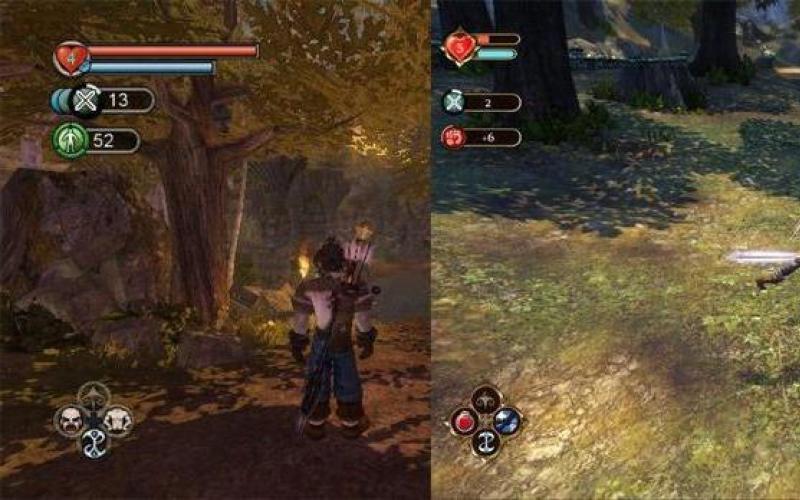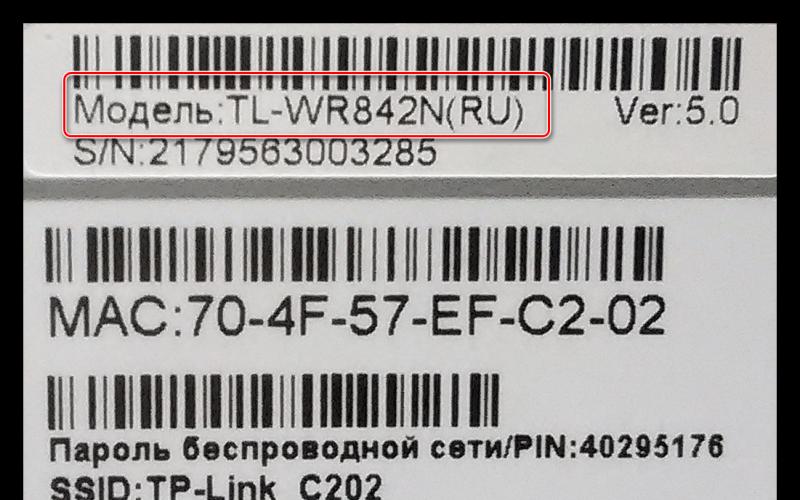September 1, 2014 marks exactly four years since the unified service began its work in Russia - free for children, teenagers and their parents. This service was organized by the Foundation for Support of Children in Difficult Life Situations together with the constituent entities of the Russian Federation.
Single children's phone trust unites all regional organizations providing psychological assistance to children, adolescents and adults. All trust services operating on the territory of the Russian Federation are connected to a single number: 8-800-2000-122 , through which children, adolescents and adults located anywhere in Russia can receive help.
Why do you need a helpline?
Parents who have encountered difficulties in raising a child or cannot find mutual understanding with their children often call the children's helpline. Experienced psychologists are ready to help any family member, regardless of what problem they are approached with. Single phone trust will also help mothers and fathers who do not know how to correctly answer their child’s questions and how to behave with him in certain situations.
Qualified specialists will listen to a child or adult and help him understand the current situation, regardless of what exactly he had to face. For psychologists of the unified children's helpline, there are no unimportant problems, and all the issues for which they are contacted are always significant. The primary task of a helpline telephone consultant is to relieve stress in the child, teenager or parent who contacts him by providing him with psychological assistance, and in some cases, convincing him of the need to seek help from a person from his environment whom he trusts.
Why you shouldn't be afraid to call the helpline
Why are children afraid to call? Usually such barriers are shyness, isolation and fear that parents will find out or the school will be informed about the call. Parents must build their child’s trust in psychological help. But often it is they who consider the helpline service to be a kind of regulatory body.
Many parents are afraid to call the children's helpline because they believe that after their call, the guardianship authorities may intervene, but such fears are unfounded. All helpline consultants maintain anonymity and confidentiality and do not share information about the identity of the person contacting special services, except in rare cases when it comes to a threat to the life and health of a child.
There is also a prejudice among some parents that their children’s communication with a psychologist will lead to a loss of parental authority. Rather, such a parental position indirectly indicates an unhealthy situation in the family and the parents’ fears that some internal family problems may come to light. It is necessary to understand that the helpline is not a threat, but help and support; calling it helps restore parent-child relationships.
Today, the children's helpline is a real lifesaver for children and teenagers who find themselves in a difficult situation and want answers to their questions, as well as for parents who do not know how to help their children.
Memo for children, teenagers and their parents
If you find yourself in a difficult situation, are faced with the inability to solve any problems in family relationships or relationships with peers, or have become a victim of physical, sexual or psychological violence, do not keep everything to yourself! Just one call to the unified children's helpline 8-800-2000-122 – and you will receive advice from a qualified specialist who will tell you what to do in your situation, help relieve mental stress and provide psychological assistance on any issue. And all this with complete anonymity, confidentiality and absolutely free.
Children's helpline specialists provide assistance to all those in need absolutely free of charge, which allows all children, adolescents and adults to contact them, regardless of the financial situation of their family. Calls can be made from both mobile and landline phones.
Victoria Gritsuk
Helpline
Helpline- one of the types of socially significant services. Provides the ability to anonymously telephone conversation with a qualified consultant.
During the conversation, the subscriber can be provided with information and psychological support, and the subscriber can transfer information to the consultant. The helpline is often used for counseling on complex, controversial topics that may be difficult to discuss in a personal conversation: interpersonal and sexual relationships, stigmatized diseases, drug use, crime.
Also, a helpline is a common service of law enforcement agencies: they are used to report an impending or occurred crime, a terrorist act, etc. Police departments, the Federal Drug Control Service and the FSB of Russia, and investigative agencies have helplines.
Story
The first helplines appeared in the United States at the beginning of the last century. In the spring of 1906 in New York, Protestant minister Harry Warren was awakened by a call. “I beg for a meeting, I have a hopeless situation,” he heard from the telephone receiver and replied: “Tomorrow the church is open in the morning.” The next morning the holy father learned that the caller had hanged himself. Shocked by what happened, the priest advertised in the newspaper: “Before you die, call me at any time of the day.”
In 1958 (according to other sources in 1952), the first helpline opened in London. Its founder, Anglican priest Chad Wara, read in the newspaper about the rise in suicide rates and thought that these people had no one to talk to and that is why they decided to take such a desperate step. Then he advertised in the newspaper with his phone number and an invitation to talk. They called him often. Since then, helplines have been operating all over the world.
Basic principles
Helpline counseling is based on several basic principles:
- anonymity of the subscriber and consultant: both of them are not obliged to identify themselves or provide their personal information; the consultant often acts under a pseudonym, the subscriber can call himself by any name or not give it at all, the subscriber’s telephone number is not recorded - this increases the security of the interlocutors;
- confidentiality: the content of the conversation is not recorded or transmitted to a third party; Only statistical information about the call can be collected: category of problem, age of the subscriber (if he reported it), his social status;
- tolerance: the views expressed by the subscriber are not condemned or criticized; this allows you to create comfortable conditions for conversation and effective work with the problem;
- conversation control: the subscriber can interrupt the conversation at any time, and the consultant can do the same under certain conditions.
In addition to the basic principles, the staff of each helpline develops its own consulting methodology, a set of rules and guidelines for the consultant.
Consultants
Psychologists or volunteers who have undergone special training act as consultants. Consultants are trained to develop telephone counseling skills, develop tolerance, and study theoretical material. The work of consultants is monitored by supervisors (professional psychologists, psychiatrists or social workers), whose task is to maintain motivation and a sufficient level of consultant skills and conduct training sessions.
Financing
Funding for the helpline is assigned to the parent organization or through monetary funds or grants. Volunteer work can be free; motivation in this case is determined by the important social role of the helpline, the opportunity to develop one’s own skills, communication or self-expression.
Hotline
It is necessary to distinguish a helpline from a hotline, since the latter has fewer basic principles, as a rule, does not provide psychological support and the main task is to collect or provide information.
Examples of helplines in Russia
- helplines for police, rescuers and investigative departments;
- several HIV/AIDS helplines;
- helpline for homosexuals, lesbians, bisexuals, transsexuals;
- psychological helpline.
See also
Links
Wikimedia Foundation. 2010.
- Comparative mythology
- Depot
See what “Helpline” is in other dictionaries:
Phone - get a valid Miniinthebox promotional code on Academician or buy a profitable phone at a discount on sale at Miniinthebox
HELPLINE- “TELEPHONE OF TRUST”, Russia, IBRUS (Russia/Azerbaijan), 2001, color, 103 min. Psychological drama. Rena, the heroine of the film, becomes a victim of violence in her youth. This injury becomes a lifelong tragedy for the girl; she can only trust... ... Encyclopedia of Cinema
Helpline- See synonym: Telephone psychotherapeutic assistance. Brief explanatory psychological and psychiatric dictionary. Ed. igisheva. 2008 ... Great psychological encyclopedia
Helpline- a form of remote psychological assistance to people. those in need of moral, psychological or spiritual support in a state of internal crises and critical situations. Anyone in need of such help calls the psychological service,... ... Fundamentals of spiritual culture (teacher's encyclopedic dictionary)
Helpline- One of the methods of socio-psychological work for the prevention of mental illness. 24 hour service, providing qualified advice to people seeking help in a stressful situation. Served by psychologists... ... Dictionary psychiatric terms
Helpline- emergency psychological assistance service for adolescents. Psychologists, teachers, social workers, representatives of public and religious organizations. Anonymous forms of communication, etc. allow you to receive... Pedagogical terminological dictionary
Helpline- - in medicine - an organizational form of providing assistance by psychotherapists over the telephone. At the same time, the patients’ problems are clarified, possible assistance is provided (recommendations, advice, explanations, the efforts of the patients themselves are stimulated to... ... Encyclopedic Dictionary of Psychology and Pedagogy
Helpline- emergency psychol. assistance intended for emergency use in urgent situations; addressed to persons in crisis, those who have, in their opinion, insurmountable obstacles in O. with... ... Psychology of communication. Encyclopedic Dictionary
Helpline of the Investigative Committee of the Russian Federation- The helpline is a means of direct communication between citizens and the bodies of the Investigative Committee of Russia (hereinafter referred to as investigative bodies) for reporting (including anonymously) information about signs of illegal acts being prepared, committed or committed,... ... Official terminology
Federal Tax Service helpline- Helpline, a channel of communication with citizens and organizations, created in order to obtain additional information to improve the activities of the Federal Tax Service of Russia, promptly respond to violations in the tax sphere, corruption and other... ... Official terminology
What is useful to know about the social and psychological assistance service
"Helpline"
What is a Helpline?
The history of telephone psychological support services dates back to the beginning of the twentieth century, when in 1906 the American pastor Warren organized a league in New York, the purpose of which was to provide moral support by telephone.
In 1953, English priest Chad Wara, founder of the Samaritans volunteer movement - a society for helping those who need help - creates a friendly helpline for people at risk of suicide.
In 1964, a voluntary telephone helpline service was organized in Czechoslovakia, and in 1967 - in Poland. It is then that the name for such services arises - “Helpline”.
In Russia, Helplines appeared for the first time in 1981 and were initially created as medical and psychological services to prevent suicide. However, it gradually became clear that people turn to Helplines not only on the threshold of a choice between life and death, but also when they are experiencing love problems, when they need to make a vital decision, when conflicts occur in the family and at work, when they want to get out of a vicious circle repeated failures, etc.
By 1991, 25 Helplines were officially registered in Russia. And in the same year, the Russian Association of Psychological Emergency Telephones (RATEPP) was established. Calling the Helpline from landlines is free.
The main goal of the Helpline service is to provide psychological assistance to citizens regardless of their social status, strengthening psychological health and an atmosphere of psychological security of the population, incl. children and teenagers.
To achieve this, each Helpline service performs the following main tasks:
provides each applicant with a confidential dialogue;
helps subscribers “gather” their creative, spiritual, physical and mental strength to get out of a crisis;
expands the range of acceptable means for subscribers to independently solve problems and overcome existing difficulties, strengthens self-confidence;
provides psychological support when experiencing a crisis, as well as during its prevention and rehabilitation after a crisis;
informs citizens where and how, in addition to calling the Helpline, they can receive psychological help in resolving their problem.
The main way in which the tasks of the Helpline service are carried out is through psychological counseling over the phone.
2. What are the operating conditions of the Helpline?
Anonymity – a client who has applied for psychological help to the Helpline is not obliged to give his name, place of residence and other information that, in his opinion, is not relevant to the case.
Confidentiality – a Hotline subscriber can be sure that any information told by the client about himself or his loved ones will not be made public and will not be transferred to third parties.
Unconditional customer acceptance – in a conversation with a subscriber, Helpline employees always proceed from the fact that a person has the right to be who he is. A client who seeks psychological help will not be judged, criticized or taught how to live.
Confidential nature of the conversation - the client’s sincerity and his trust in the consultant is the guarantee that during the conversation the subscriber will determine the reasons for his difficulties and specific steps to overcome them.
In what cases do you call the Helpline?
If:
You feel that worries, doubts and mental pain have become too frequent guests in your life lately.
Something has happened in your life that cannot be changed, and you do not know how to accept it.
The world seems hostile, and people do not understand and reject you.
Relationships with people only bring you disappointment and pain.
Conflicts and failures are repeated, you do not know how to get out of the “vicious circle”.
You have no one with whom to discuss your problems, the difficult situation that has developed in your life - we cannot always count on the understanding of even the closest people (parents, friends, etc.).
4. Do I need to prepare for a call to the Helpline?
There is no need to prepare at all for calling the Helpline. Just dial the phone number and tell us what you are experiencing and your problem.
When the psychologist picks up the phone:
Say hello and make sure that you have reached the Helpline.
If you consider it necessary, state your name.
State the purpose of your call. For example: “I have a problem, I would like to figure it out.”
Listen to the consultant's agreement. For example: “Yes, of course, I’m listening to you.”
Start by stating the essence of your problem.
The consultant will ask questions that are best answered sincerely.
And then you will analyze and think together about how best to solve the problem.
Remember that:
You have about an hour left, so try to keep it to the point.
If during the first conversation it was not possible to identify ways to solve the problem, discuss the date and approximate time of the next call to continue the conversation.
Call if:
You need help, support and understanding.
You feel that worries and doubts have become frequent guests in your life lately.
Difficulties seem insurmountable to you, and you experience helplessness and despair.
Something has happened in your life that cannot be changed, and you don’t know what to do.
Relationships with people only bring disappointment and pain.
Life seems meaningless to you.
Young friend,
you have a difficult life situation, or you ask yourself the question:
how to cope with problems, how to survive loneliness, jealousy,
loss of a loved one, get rid of shame or fear?
We are waiting and ready to help you!
All-Russian children's helpline:
8 800 2000 122
Or
6-28-19
around the clock
You're a teenager!
Does your problem seem unsolvable?
You experience mental pain, melancholy, resentment, hopelessness.
Don't know where and who to turn to for help?
Call the emergency psychological helpline
2-20-03 - commission on affairs of minors and protection of their rights (Volgina Lyudmila Leonidovna)
3-05-99 - Agency for Family and Children of the Republic of Tyva (Khovalyg Natalya Kuske – Karaevna)
3-23-47 - department of guardianship and trusteeship (Andalaeva Larisa Serenovna)
02, 3-47-85 - City Department of Internal Affairs of Kyzyl (Kuular Timur Borisovich).
2 – 34-04 – State budgetary institution Republic of Tuva Republican Center for Social Support of Family and Children
(Ondar Ilya Kylyn-oolovich)
2 – 42-55 – Department for Social Protection of the Population in Kyzyl under the Mayor’s Office, Department for Family and Children Affairs (Tumat Rolyana Kongarovna)
5-33-16 - State budgetary institution of the Republic of Tyva Center social assistance family and children in Kyzyl (Sendazhi Ruslana Nikolaevna)
Every day, around the clock and professional psychologists helpline
We are ready to help you understand a difficult life situation, advise you on relationships with peers and parents, on purely intimate issues, problems of AIDS and drug addiction.
Call and they will definitely help you!
The call is anonymous and confidential
Remember: there are no hopeless situations!
Hello! Helpline speaks!
I want to talk about what communication via the Helpline is. On one side of the invisible line of communication there is a person with his misfortune, on the other side there is a psychologist-consultant. Any communication, including over the phone with a psychologist, is a meeting of two people. If we reduce all cases of calls to TD to one capacious formula, then we can say this: a person calls the Helpline so that he can be listened to, so that someone will be nearby, be involved in his trouble, so that someone will help him gain strength and courage to cope with a problem.
As in any other Meeting, it is very important that people are open to each other and are sincere, trust and feel safe. The psychological service "Helpline" guarantees anonymity and confidentiality of communication - that's what security we're talking about. What about trust? Who do we trust with our confession?
Higher education and training special program“Psychological counseling by telephone” is an indispensable condition for working in the Helpline team. The basis of any serious business is a scientific theory, which determines the future directions for the development of practical activities. The theoretical foundations of psychological counseling over the telephone were laid by the American psychotherapist Carl Rogers, the founder of the humanistic movement in psychology. Translated from the language of science into the language of ordinary communication, the essence of the methods of humanistic psychology can be described as follows:
every person is unique;
the person himself has the necessary resources to solve any problem;
a psychologist can help open them;
In the work of a psychologist, goodwill, acceptance, or, more precisely, ACCEPTANCE of another person, no matter how different he may be, are important.
A TD consultant can be a person who has personal qualities appropriate for this work and vocational training. Tactfulness, flexibility, patience, desire for development and self-improvement, observation, attentiveness, responsibility, goodwill, good health and a sense of humor are required.
If, let’s assume that you have all this with you, and you decide to go to consultants for a TD, then keep in mind that they won’t take your word for it, but they will check you and how! After the interview and testing, your opinion about yourself may change. You must be prepared for the fact that before you help others, it is quite possible that you need to help yourself. In short, the Helpline is friendly, strict and fair.
The Helpline operates 24 hours a day.
Initially, TD was focused on working with teenagers and young people, but now almost everyone turns to us: teenagers, their parents, young people, older people.
We accept all calls!
It is important to understand that a psychological consultant will not replace a close friend, even if you call him many times every day. The Helpline consultant is not a magician; he will not wave a magic wand so that everything becomes clear, simple and easy in one second. He will not get you ready-made advice and answers for all occasions from a big bag. If you remove doubts and illusions, what will remain in the “bottom line”? The caller to the Trust Phone takes an important step: from his thoughts he moves on to talking about himself and the problem out loud. Communication with a TD consultant helps to talk about what worries a person and helps reduce anxiety, anxiety, and fear. It is live communication that pushes a person first to analyze and then to understand what is happening. Understanding the situation, in turn, opens up options for overcoming the crisis.
Helpline 8 800 2000 122
Emergency psychological assistance to anyone who finds themselves in a difficult life situation and wants to find understanding and support. Around the clock. Anonymously. For free.
Started work in the Republic of Tuva
helpline
(emergency psychological assistance service)
with a single all-Russian number
8-800-2000-122
or 6-28-19
The activity of the Helpline is to provide children and their parents (persons in their stead) with emergency counseling and psychological assistance by telephone, including in cases of abuse and violence against children, including cases of sexual violence, both within the family and outside it.
Consultations are conducted by psychologists of the highest category, specializing in working with families and children.
The helpline is open every day, seven days a week, around the clock, anonymously, free for landline and mobile phones on the territory of the Republic of Tyva
DEPARTMENT OF THE MINISTRY OF INTERNAL AFFAIRS
RUSSIAN FEDERATION FOR THE BRYANSK REGION
DEPARTMENT OF ORGANIZATION OF ACTIVITIES OF PRECINCT POLICIES
POLICE OFFICERS AND UNITS
ON JUVENILE AFFAIRS
HELPLINE
Department of the Ministry of Internal Affairs of Russia for the BRYANSK REGION
74 – 20 –– 72 – 66
MO MIA OF RUSSIA Klintsovsky "OP Gordeevskoe"
2 – 12 – 02
Get information on issues that concern you;
Provide information to a specialist (about the fact of abuse).
The children's helpline is often used for counseling on complex topics that might be difficult to discuss in a personal conversation: interpersonal relationships, drug use, crime, etc.
Operating principles of the Helpline service
Availability
Anonymity
Confidence
Privacy
Each caller has the right not to give his first and last name or can choose a pseudonym.
And he can also be sure that the conversation will remain strictly between him and the specialist. Therefore, you can trust your interlocutor completely, and this, in turn, makes the consultation more effective and allows you to find best solution problems.
https://pandia.ru/text/79/081/images/image009_10.jpg" alt="http://*****/foto/00250.jpg" align="left" width="236" height="221 src=">!} Help available: throughout the day, twenty-four hours a day, we are ready to listen to you and provide advice. Don’t think that you can disturb a consultant with a late-night call; every call is important to us.
https://pandia.ru/text/79/081/images/image011_23.gif" align="left" width="222 height=191" height="191">
“Helpline” allows you to cope with anxious thoughts, gain faith in yourself, and understand a difficult life situation. Regardless of age, nationality, religion, or outlook on life, a Helpline consultant is always ready to listen and help.
Download:
Preview:
Why is there a “Helpline”?
“Helpline” allows you to cope with anxious thoughts, gain faith in yourself, and understand a difficult life situation. Regardless of age, nationality, religion, or outlook on life, the Helpline consultant is always ready to listen and help
Specialists of the emergency psychological assistance service “helpline” are ready to answer questions from children and adolescents and provide emergency psychological work.
Parents can also call the “helpline” regarding problems with relationships with children, adolescent use of psychoactive substances, personal problems, etc. If necessary, parents are provided with information about services and organizations where free qualified medical, legal, psychological and pedagogical assistance will be provided help.
Operating principles of the Helpline:
Constant availability – day and night, 24 hours a day, you can get psychological help and support;
Anonymity and confidentiality - you don’t have to give your name, the content of the conversation is not disclosed.
One of the main principles of the “Helpline” is to really believe, to believe that a person is able to solve his problems himself.
SPECIFICATIONS OF THE CALL PHONE.
The specifics of telephone counseling are the following principles:
1. Always available: day and night, 24 hours a day, people in difficult situations can receive support from another person.
2. Anonymity and confidentiality: The caller has the right not to give his name. The content of the conversation is absolutely confidential.
3. Respect the caller: The caller is accepted as he is. The consultant has no right to manipulate the caller or impose his position; Any form of ideological pressure is unacceptable, including religious or political.
4. Caller protection: a consultant can be a person who has undergone selection and special training; The consultant is obliged to constantly improve his skills.
Experience shows that a qualified telephone consultant can significantly alleviate a person’s mental suffering, help him reduce the level of mental stress and return to normal life.
At the same time, in order for psychological assistance to be effective, it is necessary to know the specifics of how people of different categories respond to an emergency. It is especially important for children to receive timely psychological assistance as the most vulnerable category of the population.
Doctors and teachers, psychologists and social workers have joined forces to help such children. A psychologist plays a particularly important role in supporting children. Fear, pain and despair - these feelings are experienced by every little person who is subjected to violence. To help survive it, find the strength to forgive the insult and cruelty and move on - this is the task of a psychologist when working with such children.
Child abuse is especially dangerous because of its long-term consequences. The earlier a person is exposed to cruelty, the more unpredictable and terrible its consequences can become. It is no coincidence, according to many researchers, that physical and sexual abuse of children at an early age later becomes causes of suicidal behavior. Such consequences can be avoided if you receive professional psychological help in a timely manner. This service provides this opportunity. emergency assistance"Helpline". Undoubtedly, the main purpose of such assistance isrelieving situational tension and working with negative emotional experiences.
The problem of abuse is most often addressed by children, adolescents, and sympathetic adults (relatives, neighbors, concerned about what is happening to children they know, who want to help them, but do not know how to do it).
Helpline specialists are able to provide assistance of both an informational nature (providing complete information about the problem and/or addressing services that are ready to provide medical, legal or other assistance necessary in this situation) and psychological (working with the client’s personal problems: feelings of guilt for what happened, resentment, shame, anger, aggression towards children and adolescents; individual face-to-face counseling and psychotherapy are possible).
Working with children and adolescents in crisis situations has its own characteristics. Let's look at them in more detail.
Primary school children age due to age characteristics, they are especially sensitive to any emotional influences and easily repress a traumatic event or memory to the level of the unconscious, telling the psychologist that nothing special happened. In this case, it is necessary to carefully touch traumatic memories and develop the safest strategy of behavior. In addition, the perception of a situation of abuse often depends on the structure and model of the family. For example, in some families physical punishment is not perceived as something prohibited. Children's images of parents are often idealized, and the parent - the source of violence - may be perceived as fair and kind. Premature destruction of this illusion can lead to the destruction of the child’s family image, and consequently, to the deformation of his personality. Whatever the source of violence, psychological work is desirable with all family members. Therefore, in case of contacting the child abuse helpline, face-to-face consultation with a psychologist and therapy are recommended.
Areas of work with children: relieving emotional stress, treating acute emotional states using the techniques of play therapy, fairy tale therapy, symbol drama, etc.
Work with parents: support, relief of acute emotional states, assistance in solving family problems and information services.
Children aged 9-12 yearsthey call the TD service in a state of shock, stress, post-stress, or depression. They differ from younger children in their greater awareness of the situation of abuse. The ability to make decisions independently in a crisis situation increases.
Work strategies: relieve acute emotional states (listen, understand and accept), emphasize the rights of the child and the inadmissibility of the abuse that occurred, emphasize the uniqueness of the child’s personality, focus on resources, work with feelings of guilt and inferiority, rationalize the emotional state, intensify the search way out of the current situation, provide the necessary information.
Teenagers aged 13-18 yearscontact the TD service in a crisis situation immediately after a traumatic event or after some time has passed. Psychological states: depression, feelings of hopelessness, helplessness, anxiety, apathy, disappointment, embarrassment, rage, anger, bitterness, etc.
Facts of abuse distort the child’s self-esteem and contribute to the appearance of negative assessments in the child’s “I” image: weak, flawed, useless, humiliated, etc. Therefore, in counseling and psychotherapy it is necessary to reveal and strengthen the child’s personality.
Work strategies: acceptance and empathy, clarifying the essence of the problem, working through the current emotional state, past traumatic experiences, searching for options to get out of the current situation, developing a strategy for safe and resource-saving behavior, offering face-to-face consultation to continue psychological work in self-help groups or training groups under the guidance of psychologist.
The children's helpline also provides assistance and parents experiencing difficulties in relationships with their children and/or if they are concerned about the physical and/or psychological health of the child. Adults often do not have information about how to interact with children in emergency situations, and they are characterized by confusion and a feeling of helplessness. The helpline service can help parents find ways to psychologically support children traumatized by any events, and restore normal daily life for the family and the educational process for the child.
BASIC PRINCIPLES OF ACTIVITY OF COPY PHONES
Children's Helplines follow a number of principles in their activities that allow them to organize effective and accessible assistance to children.
Respect for the child.When talking with a child, it is unacceptable to use pressure; the child’s opinion should be listened to carefully. It is unacceptable to force a child to act against his will.
Availability. Emergency psychological assistance by telephone should be available at a time convenient for the child and work uninterruptedly in accordance with a clearly stated work schedule. All children should have the opportunity to use the telephone, as well as receive accessible information about the activities of the Helpline.
Free. The service cannot receive economic benefits in the process of operation and all calls to the Helpline from children and adolescents should be free, regardless of the location of the caller.
Confidentiality.The service guarantees the caller anonymity. Information about the fact of the call, as well as the content of the conversation itself, is kept secret.







